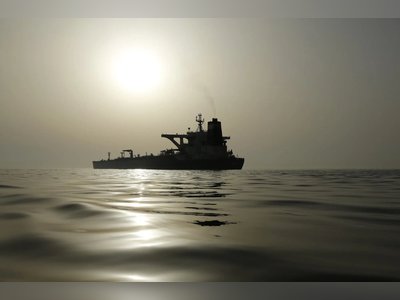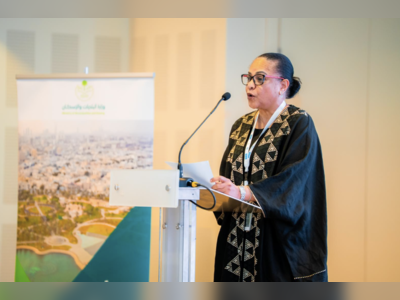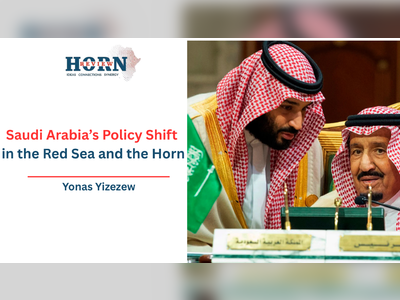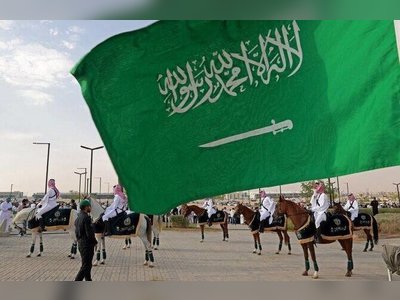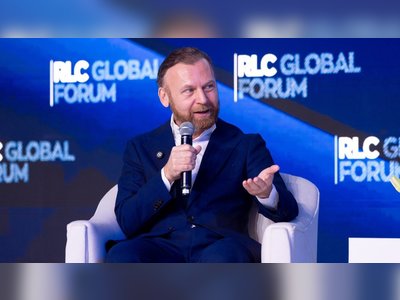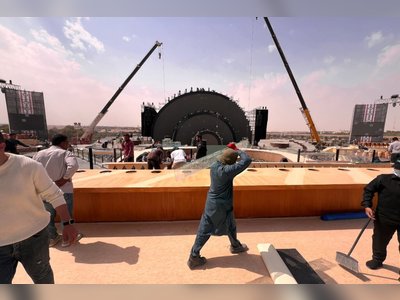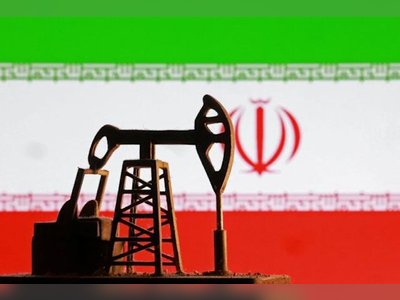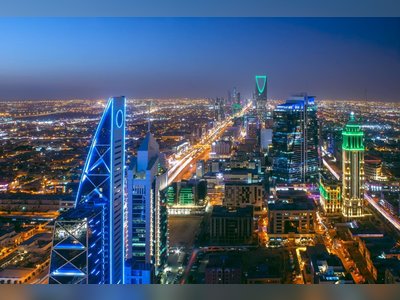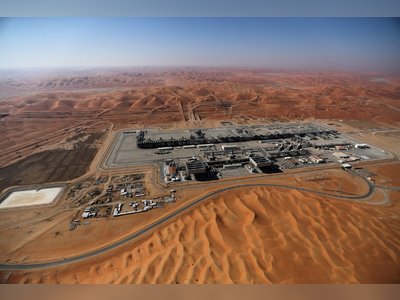
Saddam Hussein fell. Then violence in Iraq spiralled
When U.S.-led forces toppled Saddam Hussein in 2003, Adel Amer celebrated what he thought marked the end of two decades of war and isolation under sanctions that had brought Iraq and its people to their knees.
"I was dancing like crazy and couldn't believe Saddam was gone. I felt like a bird unleashed from a cage," Amer said.
But it turned out to be just the beginning of another era of conflict and chaos that saw an insurgency, the rise of Islamist violence and sectarian strife that deepened the suffering of Amer, now 63, and his family.
Amer's troubles began long before the U.S.-led invasion, which was launched on March 20, 2003. He had deserted from the army during Saddam's war with Iran in the 1980s.
"I was fed up with facing death all the time and seeing my friends either killed or maimed by heavy Iranian shelling all the time," Amer said.
He fought back tears as he spoke to Reuters and took out an old picture of him and his fellow soldiers when he was 20 inside a trench during the conflict, which claimed one million lives.
"I told myself it’s time to flee the army. I was aware I would be executed if I was caught but staying alive was worthwhile and I did it. This is why I’m alive today," said the white-bearded Amer, who looked weak and tired after a lifetime of travails.
Amer fled his family house in a rural area near Baghdad airport to live in an orchard owned by his brother-in-law. He grew a long beard and worked as a farmer to avoid detection by Saddam's security forces.
He took another risk in 1990-1991, when Saddam's forces invaded neighbour Kuwait, a move that turned Iraq into a pariah.
A U.S.-led coalition hammered Iraqi forces and the United Nations imposed sanctions on Iraq for more than a decade.
Amer avoided military service in Iraq's seven-month occupation of Kuwait even after Saddam issued a decree that deserters would have part of their ear cut off or an X mark would be branded on their foreheads.
He was hated by his former army colleagues and most residents in his neighbourhood, although no one handed him in because they knew he would face execution.
"I suffered a lot and sometimes I was thinking of ending my life but told myself there is always a hope even if it was a little."
When Saddam's long dictatorship ended in 2003, Amer threw an extravagant party in his house. He would never have to run for his life again now that U.S. troops had taken control of the country, so he thought.
U.S. President George W. Bush and his generals promised to deliver a thriving democracy and prosperous economy - a sharp contrast to Saddam's rule when innocent people were tortured and killed and billions of petrodollars were squandered.
Instead, more violence followed. Al Qaeda began a devastating insurgency, unleashing bombs and beheading people. Soon Iraq would be engulfed in a sectarian civil war in 2006-2008 mostly between Sunnis and Shi'ites. Corpses could be seen floating in rivers.
Amer and millions of other people would live in fear once again as Sunni militant groups and Shi'ite militias, many backed by regional powerhouse Iran, terrorised Iraqis and fought U.S. troops.
In October 2004, Sunni insurgents affiliated to Al Qaeda kidnapped Amer's father, brother and cousin from the family field while they were working and took them to an unknown destination only because they were Shi'ites.
"I was shocked and devastated fearing the worst will happen to my father, brother and my cousin. I was not ready to live in fear again," Amer said.
Amer spent around a year trying to determine if his relatives were dead or alive, often visiting the morgue in Baghdad where unknown bodies of those killed in communal violence were brought in.
"Around a year following the kidnapping of my father with a brother and a cousin, police came to my house and asked to go to the central morgue in Baghdad after they found the remains of three bodies dumped in a swamp not too far away from my area."
Amer recalled how he went to the morgue in Baghdad and saw corpses stacked one above the other everywhere in the building.
"I knew one body from the watch that was still around the wrist bone. It was for my brother Kadhim," he said.
He took the bodies and buried them next day in the Shi'ite city of Najaf and set up a funeral tent right at the same spot he celebrated Saddam’s demise in 2003.
Amer went into hiding again. He rarely went out except to buy food for his wife and three daughters.
Life looked up eventually.
Amer found a job with a foreign construction company in 2010.
But more trouble came three years later. Amer was arrested by a militia close to Iranian-backed Asaib Ahl al Haq and was beaten and dumped on a roadside with an arm, a rib and three teeth broken.
"They said I must not work for a U.S. company because this will make me just like a spy," he said.
"It was too tough for me to accept this situation. I told myself I didn't suffer a lot under Saddam’s regime to end up losing my family members to terrorists and then tortured and humiliated by my fellow Shi’ites only because I was dreaming of a better life."
Amer quit his work fearing for his life and made up his mind to flee to Turkey in 2015. He paid $5,000 for a fake passport to flee to Europe via Greece but police in Athens airport caught him and jailed him for a week and then sent him back to Turkey.
"I was fed up with my country. It was hell for me to stay in Iraq and I decided to keep trying to migrate even if cost me my life," he said.
In 2016, Turkish police stopped a bus owned by a Turkish illegal migrant’s smuggler with 20 Iraqis including Amer on board trying to cross to Greece by boats. Amer said he was forced to return to Iraq a month later, where he now lives in fear that the Shi'ite group will hunt him down.
Amer said he is still determined to leave Iraq, two decades after U.S. troops and Iraqis pulled down a statue of Saddam Hussein in central Baghdad.
"I was in hiding under Saddam's regime, and now I'm in hiding again," he said. "Before the invasion, there was just one Saddam. Today there are many more."
But it turned out to be just the beginning of another era of conflict and chaos that saw an insurgency, the rise of Islamist violence and sectarian strife that deepened the suffering of Amer, now 63, and his family.
Amer's troubles began long before the U.S.-led invasion, which was launched on March 20, 2003. He had deserted from the army during Saddam's war with Iran in the 1980s.
"I was fed up with facing death all the time and seeing my friends either killed or maimed by heavy Iranian shelling all the time," Amer said.
He fought back tears as he spoke to Reuters and took out an old picture of him and his fellow soldiers when he was 20 inside a trench during the conflict, which claimed one million lives.
"I told myself it’s time to flee the army. I was aware I would be executed if I was caught but staying alive was worthwhile and I did it. This is why I’m alive today," said the white-bearded Amer, who looked weak and tired after a lifetime of travails.
Amer fled his family house in a rural area near Baghdad airport to live in an orchard owned by his brother-in-law. He grew a long beard and worked as a farmer to avoid detection by Saddam's security forces.
He took another risk in 1990-1991, when Saddam's forces invaded neighbour Kuwait, a move that turned Iraq into a pariah.
A U.S.-led coalition hammered Iraqi forces and the United Nations imposed sanctions on Iraq for more than a decade.
Amer avoided military service in Iraq's seven-month occupation of Kuwait even after Saddam issued a decree that deserters would have part of their ear cut off or an X mark would be branded on their foreheads.
He was hated by his former army colleagues and most residents in his neighbourhood, although no one handed him in because they knew he would face execution.
"I suffered a lot and sometimes I was thinking of ending my life but told myself there is always a hope even if it was a little."
When Saddam's long dictatorship ended in 2003, Amer threw an extravagant party in his house. He would never have to run for his life again now that U.S. troops had taken control of the country, so he thought.
U.S. President George W. Bush and his generals promised to deliver a thriving democracy and prosperous economy - a sharp contrast to Saddam's rule when innocent people were tortured and killed and billions of petrodollars were squandered.
Instead, more violence followed. Al Qaeda began a devastating insurgency, unleashing bombs and beheading people. Soon Iraq would be engulfed in a sectarian civil war in 2006-2008 mostly between Sunnis and Shi'ites. Corpses could be seen floating in rivers.
IN SEARCH OF LOVED ONES
Amer and millions of other people would live in fear once again as Sunni militant groups and Shi'ite militias, many backed by regional powerhouse Iran, terrorised Iraqis and fought U.S. troops.
In October 2004, Sunni insurgents affiliated to Al Qaeda kidnapped Amer's father, brother and cousin from the family field while they were working and took them to an unknown destination only because they were Shi'ites.
"I was shocked and devastated fearing the worst will happen to my father, brother and my cousin. I was not ready to live in fear again," Amer said.
Amer spent around a year trying to determine if his relatives were dead or alive, often visiting the morgue in Baghdad where unknown bodies of those killed in communal violence were brought in.
"Around a year following the kidnapping of my father with a brother and a cousin, police came to my house and asked to go to the central morgue in Baghdad after they found the remains of three bodies dumped in a swamp not too far away from my area."
Amer recalled how he went to the morgue in Baghdad and saw corpses stacked one above the other everywhere in the building.
"I knew one body from the watch that was still around the wrist bone. It was for my brother Kadhim," he said.
He took the bodies and buried them next day in the Shi'ite city of Najaf and set up a funeral tent right at the same spot he celebrated Saddam’s demise in 2003.
Amer went into hiding again. He rarely went out except to buy food for his wife and three daughters.
Life looked up eventually.
Amer found a job with a foreign construction company in 2010.
But more trouble came three years later. Amer was arrested by a militia close to Iranian-backed Asaib Ahl al Haq and was beaten and dumped on a roadside with an arm, a rib and three teeth broken.
"They said I must not work for a U.S. company because this will make me just like a spy," he said.
"It was too tough for me to accept this situation. I told myself I didn't suffer a lot under Saddam’s regime to end up losing my family members to terrorists and then tortured and humiliated by my fellow Shi’ites only because I was dreaming of a better life."
Amer quit his work fearing for his life and made up his mind to flee to Turkey in 2015. He paid $5,000 for a fake passport to flee to Europe via Greece but police in Athens airport caught him and jailed him for a week and then sent him back to Turkey.
"I was fed up with my country. It was hell for me to stay in Iraq and I decided to keep trying to migrate even if cost me my life," he said.
In 2016, Turkish police stopped a bus owned by a Turkish illegal migrant’s smuggler with 20 Iraqis including Amer on board trying to cross to Greece by boats. Amer said he was forced to return to Iraq a month later, where he now lives in fear that the Shi'ite group will hunt him down.
Amer said he is still determined to leave Iraq, two decades after U.S. troops and Iraqis pulled down a statue of Saddam Hussein in central Baghdad.
"I was in hiding under Saddam's regime, and now I'm in hiding again," he said. "Before the invasion, there was just one Saddam. Today there are many more."

